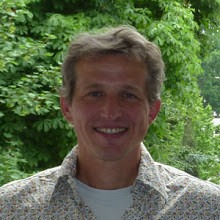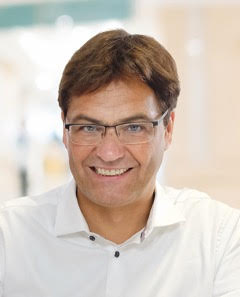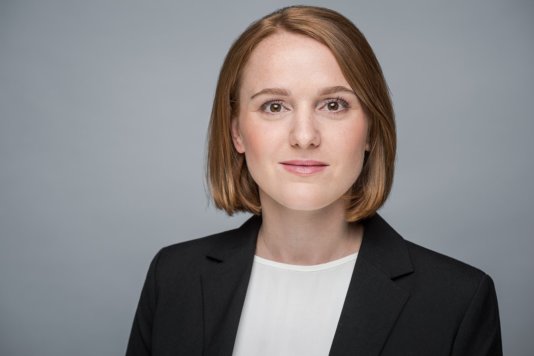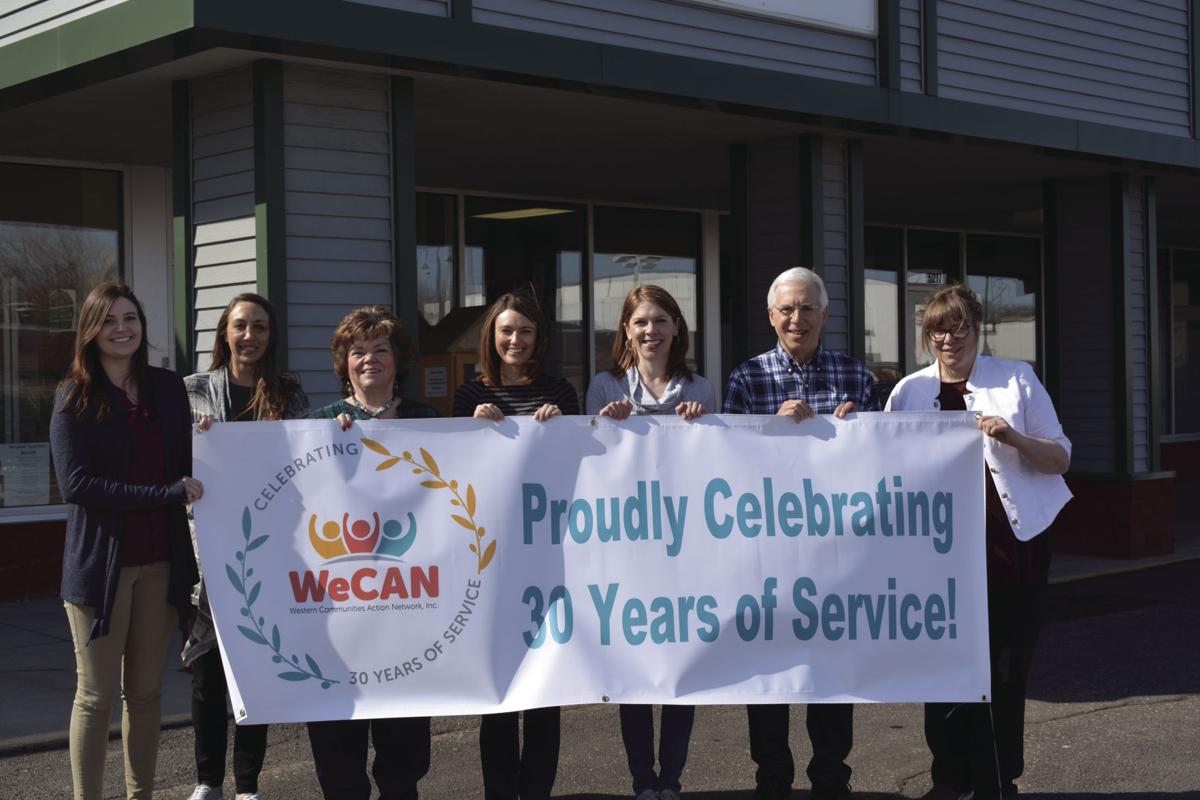- About
- Topics
- Story
- In-Depth
- Picks
- Opinion
- News
- Donate
- Signup for our newsletterOur Editors' Best Picks.Send
Read, Debate: Engage.
| December 06, 2019 | |
|---|---|
| topic: | Climate action |
| tags: | #Cop25, #Madrid, #climate change, #environment, #NABU, #Oxfam, ##TimeForAction |
| located: | Spain |
| by: | Frank Odenthal |
The 25th edition of the UN Climate Conference has been relocated from Santiago de Chile to Madrid due to political unrest in Chile. From December 2 to December 13 2019, representatives from all countries will gather in Spain, together with scientists, stakeholders of companies and members of civil society, including many environmental and human rights NGOs.
FairPlanet approached many of the participants before the start of the summit. We asked them about their expectations, hopes, goals, about the expected difficulties and obstacles, and about the expected results.
 Bertram Zagema is Oxfam policy adviser on food and climate change. He is based in the Netherlands.
Bertram Zagema is Oxfam policy adviser on food and climate change. He is based in the Netherlands.
FairPlanet: What are your hopes for the upcoming climate conference in Madrid?
Bertram Zagema: I hope governments will look at the chaos this crisis is causing across the globe, listen to millions of people who have been taking to the streets to demand action and make this climate summit matter. I hope we will see governments – particularly wealthy ones – commit to much more ambitious cuts in emissions and agree to provide more support – including finance – to help poor communities rebuild and recover from the loss and damage caused by this crisis.
Which would be the ideal result? And which results do you realistically expect?
For politicians to start treating this crisis like the global emergency it is. We want many more governments to commit to much deeper and quicker emissions reductions and we want concrete steps towards the establishment of a new fund to help poor countries recover from loss and damage that result from the climate crisis. 20 million people a year were internally displaced by climate fuelled disasters over the last decade – yet they are getting little or no help to rebuild their lives from the international community and this needs to be fixed in Madrid. Not enough is being done to prevent catastrophic levels of warming that could displace many millions more.
What obstacles and confrontations do you expect at the conference?
Governments such as the US – which will formally leave the Paris Agreement next November – and Australia will continue their attempts to block progress. The fossil fuel industry – the big oil and gas and coal companies – have put a lot of effort into cleaning up their image but rather less into cleaning up their act. They continue to spend millions lobbying against climate action. For example a recent report showed that big oil and gas companies such as Shell, BP, Chevron, Exxon Mobil and Total spend $200 million a year lobbying to delay, control or block policies to tackle the climate crisis.
There is also a lack of champions among the Northern countries on issues such as loss and damage. We have a (Warsaw) mechanism on loss and damage under the climate agreement that is little more than a talking shop. None of the rich countries are prepared to accept financial responsibility for supporting vulnerable people to deal with the impacts of climate change that they have to deal with today.
Which events will you attend? Which people will you meet?
I will be in Madrid following negotiations on finance - I will meet with the negotiators and with decision makers on the nitty gritty of how support to developing countries gets accounted for, as well as about the fact that the amount of money on the table is far from what is required to meet the needs on the ground in poor countries. I will also meet with other lobbyists and campaigners on what we can do to force a step change in this process.
Have you participated in previous climate conferences? How would you summarise your experiences of these conferences?
I have been to the previous two COPs, which haven't been the most eventful ones; nothing compared to the big COP in Paris 4 years ago. You may work around the clock and see thousands of others do the same - and yet after two weeks I felt that not much had actually been achieved, not at the scale and with the urgency asked for by the people in the street. I hope this COP will be different, it should be because never before have so many people asked for action.
Do you expect the number of those seeking to prevent effective climate protection measures to change?
I think there is a still a very strong lobby against climate action that includes wealthy governments and wealthy corporations and wealthy individuals.
What has changed is the rapid growth in the movement of people demanding action across the globe – this is changing the debate in countries across the globe and pushing governments and companies to act. The question is will they go far enough and quick enough?
Which measures for effective climate protection should be decided or tightened at the Climate Change Conference?
There are really two crucial issues at this conference: firstly, stopping a climate catastrophe by getting all countries to deliver deeper and quicker emissions reductions. Governments published their emissions reduction targets for 2030 under the Paris Agreement. These commitments, called nationally determined contributions or NDCs, put us on track for a catastrophic 3 or more degrees of warming by the end of the century. Governments need to up their ambition and quickly as the window of opportunity to act, and prevent catastrophic irreversible climate change is rapidly closing. Secondly, providing the support that is needed to help poor communities that are already being hit hard by the climate crisis. 20 million people a year were internally displaced by climate fuelled disasters over the last decade, yet they are getting little or no help to rebuild their lives from the international community.
Governments are a long way of delivering the $100 billion a year they promised to help poor countries cut their emissions and adapt. For instance in the ongoing replenishment of the Green Climate Fund, even countries such as Canada, Spain and the Netherlands are not contributing their fair share of the funds that are needed and they need to step up. Governments must also mobilise additional funds to help communities who can't adapt to the crisis – including communities who have been forced from their home and land.

Dr. Peter Liese is a member of the German Christian Democrat party CDU, which is a member of the EPP in the European Parliament. He is coordinator (spokesman) of the EPP in the Committee on the Environment, Public Health and Food Safety.
FairPlanet: What are your hopes for the upcoming climate conference in Madrid?
Dr. Peter Liese: I hope that the Madrid conference will give a strong signal that the world is united in the fight against climate change and that the decision of the United States to leave the Paris Agreement will not undermine the efforts of other countries.
Which would be the ideal result? And which results do you realistically expect?
An ideal result will be that we not only agree on Article 6 of the Paris Agreement concerning the carbon market but that we also have a dynamic on increased NDCs by as many countries, especially major economies, as possible. Unfortunately, it is not realistic that this will happen in Madrid but we should create the right framework that it can happen before the next conference in Glasgow.
What obstacles and confrontations do you expect at the conference?
The main problem is the behaviour of the United States and Brazil. Unfortunately, they are stepping back from what they agreed to in Paris.
Have you participated in previous climate conferences? How would you summarise your experiences of these conferences?
I have been participating in many climate conferences. Unfortunately, we had a lot of frustration. I hope through the new dynamics, especially triggered by young people and the Fridays for Future movement, this will change.
Which events will you attend? Which people will you meet?
I will visit the Conference as Vice-President of the official delegation of the European Parliament. We mainly meet Parliamentarians from other countries and experts but we are also there to supervise the negotiators of the European Commission and the European Council because any international agreement has to be supported by the European Parliament. The most important event for me is the side event by the European Parliament where we invite people from many major economies that fight for higher NDC in their respective country.
Which measures for effective climate protection should be decided or tightened at the Climate Change Conference?
Success on article 6 is a must. Commitment for further action would be really helpful.
Fentje Jacobsen is policy adviser for climate and energy at World Wide Fund for Nature (WWF).
FairPlanet: What are your hopes for the upcoming climate conference in Madrid?
Fentje Jacobsen: I very much hope that all items on the agenda can be negotiated to such an extent that the objective of the Paris Agreement to limit global warming to 1.5 degrees, will be achieved. This means, for example, that the implementation rules (ie around carbon markets) do not undermine the Agreement. At the same time, the subject of Loss & Damage must be strengthened and needs adequate finance.
Finally, there is also the issue of increasing ambition, even if this item is not on the agenda. Country pledges through their national climate plans are far from sufficient to limit global warming to 1.5 degrees. Currently we would end up at around 3-4 degrees. These must be revised in an ambitious manner and the direction must be set now to send.
Which would be the ideal result? And which results do you realistically expect?
In addition to the robust rulebook and funding for climate-related Loss & Damage, there must be a group of ambitious countries that announce an ambitious revision of their national climate plans. This must include the EU, which must at last take the lead again and send an important signal to motivate others to follow.
What obstacles and confrontations do you expect at the conference?
It is always rather difficult to predict the dynamics of the conference, e.g. what will be used strategically by individual member states as negotiating mass. But of course, a major obstacle at the moment are the member states that block certain strands of negotiations. In any case, the negotiations on carbon markets will be difficult, as will the negotiations on technical aspects of Loss & Damage.
Which events will you attend? Which people will you meet?
I co-organise some side events on 100% Renewable Energy and NDC Enhancement myself. In addition, I follow the discussions around raising ambition and support the international WWF network wherever I can. Of course, there will also be some meetings with partners of other NGOs and delegation members. Many meetings are only arranged at short notice. We are working very closely with the Klima-Allianz Deutschland, a civil society alliance for climate protection in Germany.
Have you participated in previous climate conferences? How would you summarise your experiences of these conferences?
Yes, I have already participated in COP23 (2017 in Bonn) and COP24 (2018 in Katowice). I have always experienced the two weeks of negotiations with quite some highs and lows - very fast moving and full of hope and emotions.
Do you expect the number of those seeking to prevent effective climate protection measures to change?
At this point, I hope that the number of opponents will decrease. We must finally take the right steps towards a greenhouse gas-neutral future and step away from fossil fuels.
Which measures for effective climate protection should be decided or tightened at the Climate Change Conference?
The climate conference is not the room in which concrete measures are negotiated, it is rather a matter of getting a framework and robust rules. As already mentioned, the national climate plans are at the centre of the Agreement. But here, too, there are some partnerships and initiatives to promote climate action and, for example, to support countries that do not have the capacity.
To push this process, it needs big emitters to show their willingness for climate protection. Then other countries will easier follow. We call on the EU to announce the aim of climate neutrality until 2050 during the EU Council meeting during the second week of the COP. This could be the decisive push to kick of a new round of ambition.
Sebastian Scholz is head of energy and climate policy at Nabu Germany.
FairPlanet: What are your hopes for the upcoming climate conference in Madrid?
Sebastian Scholz: Leaders not only recognise the climate crisis but really starts to act. As this years theme is Time to Act, this would mean, results of the COP25 are a bit more than symbolic or targets in the long term.
Despite that: we need a robust Article 6 without loopholes and lots of announcements of ambitions raising. And of course financial announcements.
Which would be the ideal result? And which results do you realistically expect?
Ideal: as mentioned, when expressing my hopes. Realistic? Actually in the climate debate it would be realistic when committing to the 2/1.5°C target to cut emissions dramatically. Immediately. But getting back to realistic expectations: There will be announcements for more ambitions and finance, there will be an article 6, but not completely robust.
What obstacles and confrontations do you expect at the conference?
It is all about money and guilt. Money is important for the global south, for those suffering already a lot from the climate crisis. Money will be given, when the question for guilt will not be completely answered.
Which events will you attend? Which people will you meet?
A lot of events! I will meet partners from our networks. I will meet delegates from various countries, German politicians as well as high level administration staff.
Have you participated in previous climate conferences? How would you summarise your experiences of these conferences?
Yes, Lima, Peru was my first COP. I made dense experiences, not summerisable.
Do you expect the number of those seeking to prevent effective climate protection measures to change?
Right now there is a quite big public perception of the climate crisis. This makes things a lot more difficult for those being still in denial.
Which measures for effective climate protection should be decided or tightened at the Climate Change Conference?
There is no silver bullet, but probably all possible measures should be taken into considerations. Definitely more important within the debate should be any kind of nature based solutions.
Many thanks to all participants for their answers to our questionnaire. In two weeks we will contact them again to ask about the results and experiences of the conference.
By copying the embed code below, you agree to adhere to our republishing guidelines.

![Sebastian Scholz is head of energy and climate policy at Nabu Germany. Sebastian Scholz NABU (© sevens[+]maltry)](https://www.fairplanet.org/wp-content/uploads/2019/12/sebastian-scholz-nabu-copyright-sevensmaltry-534x356.1575651208.jpg)
